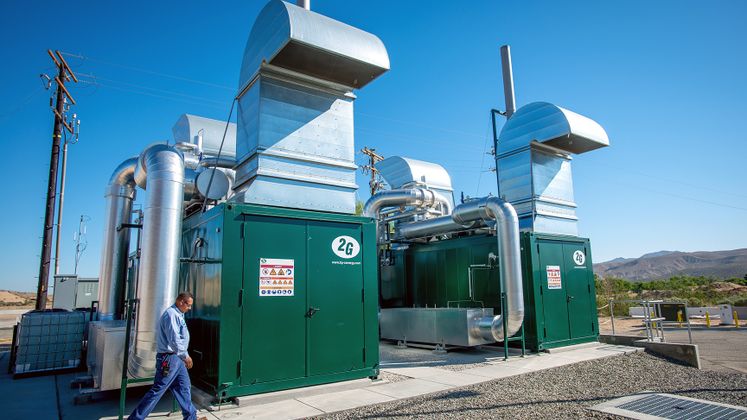Wednesday, 21/01/2026 | 07:25 GMT+7
King Midas may have been able to turn ordinary objects into gold, but Logan Olds, general manager of the Victor Valley Wastewater Reclamation Authority, goes one better.
He converts organic waste into energy, which means millions in energy savings and rebates for the agency he manages. If all goes as planned, Olds could end up turning millions of gallons of waste into $9 million in energy savings for the Victor Valley Wastewater Reclamation Authority over the next couple of decades.
And, thanks to an innovative incentive program available to Southern California Edison (SCE) business customers, the reclamation plant just received $3.2 million in rebates for making changes that will improve the environment and save millions more over the long run.
The statewide program, known as the Self-Generation Incentive Program, offers rebates to SCE business customers who install clean, efficient, on-site distributed generation through a variety of means, including technology that produces energy from waste, of which the treatment plant has no shortage.
“The Self-Generation Incentive Program is one of the many incentive programs that can help SCE business customers save money while conserving energy and cleaning up the environment,” says SCE account executive Amy Olson. “By taking advantage of this program, the Victor Valley Wastewater Reclamation Authority is reducing greenhouse gas emissions while also helping lower the demand on the power network.”

That, in turn, helps reduce the need to build expensive fossil fuel-fired power plants, she said.
The first step in the process of converting waste to energy, Olds explains, is to run the waste — primarily sewage — through waste-treatment devices known as anaerobic digesters. The digesters use the same bacteria as is in the human body to break down the waste, yielding methane gas, or biogas, which is flammable.
“We can use any type of organic waste to produce methane gas,” says Olds. “The dominant form of waste is from homes that flow to our facility, but we also accept fats, oil and grease from the restaurant industry.”
He says Victor Valley, a community of 250,000 people and associated business and industry, sends 12.3 million gallons of wastewater per day to the treatment plant.
The second step in the process is to use the gas to fuel two large generators with a combined capacity of 1.5 megawatts. And that’s where the payoff is. Olds estimates the reclamation plant will save 25 to 35 percent annually on its energy bill.
“We will save a minimum of about $9 million over the next 20 years,” Olds said. “We have lower production costs because we have a renewable fuel that’s delivered to our facility every minute of every day.”
Olds expects that 9 million kilowatt-hours will be offset from the grid annually, and about 1,400 tons of waste will be used as energy instead of being sent to the landfill. The reclamation authority hopes to be 100 percent energy neutral by next year.
And SCE’s Olson gets the credit for helping to make those energy savings possible.
“She’s been a long-term partner with us, and fantastic to work with,” Olds says. “I honestly believe that without her assistance, we would not be able to achieve what we’re about to achieve at this facility.”
Truong Duy








 Steel Enterprises Saving Energy and Enhancing Competitiveness
Steel Enterprises Saving Energy and Enhancing Competitiveness
 Strengthening Sales and Marketing Capacity for Energy Efficiency Equipment and Solution Suppliers
Strengthening Sales and Marketing Capacity for Energy Efficiency Equipment and Solution Suppliers
 Capacity Building for Energy Officers of Government Agencies in the Central region
Capacity Building for Energy Officers of Government Agencies in the Central region
 Energy Efficiency and Conservation: Technology as the “Key”
Energy Efficiency and Conservation: Technology as the “Key”
 Energy-saving solutions and green transition promotion
Energy-saving solutions and green transition promotion
 Opening of the 2025 Energy-Efficient Equipment and Green Transition Exhibition Fair
Opening of the 2025 Energy-Efficient Equipment and Green Transition Exhibition Fair
 Develop sales and marketing strategies for energy efficiency equipment and solution suppliers
Develop sales and marketing strategies for energy efficiency equipment and solution suppliers